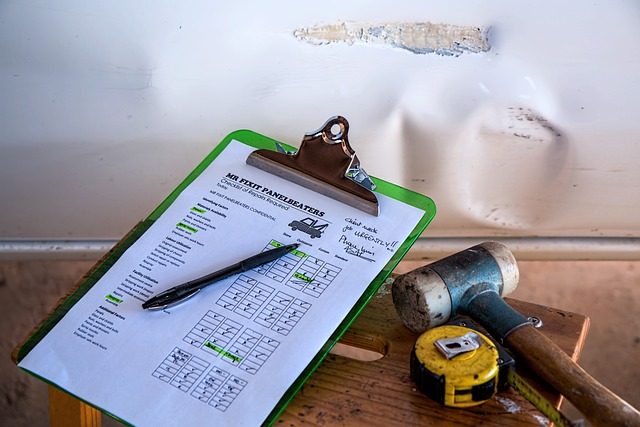How to Apply for a Student Visa in Belgium

Belgium is home to some of Europe’s top universities and offers a vibrant multicultural environment for international students. If you’re planning to study in Belgium, obtaining a student visa (also known as a long-stay visa or Type D visa) is a crucial step. Here’s a comprehensive guide to help you navigate the application process smoothly.
1. Determine Your Eligibility
To apply for a Belgian student visa, you must meet the following criteria:
- You have been accepted into a recognized educational institution in Belgium.
- You can prove sufficient financial means to support yourself during your stay.
- You have valid health insurance coverage.
- You do not pose a threat to public order, security, or health.
2. Types of Student Visas
There are two main types of visas for students:
- Short-Stay Visa (Type C): For courses lasting less than 90 days (e.g., summer programs or short-term exchanges).
- Long-Stay Visa (Type D): For courses lasting more than 90 days (e.g., bachelor’s, master’s, or PhD programs). This visa also serves as a residence permit for the first three months.
Most international students will need a Type D visa .
3. Required Documents
The following documents are typically required for a student visa application:
a. Completed Visa Application Form
- Download and fill out the official visa application form from the Belgian embassy or consulate website.
b. Valid Passport
- Your passport must be valid for at least 12 months beyond your intended stay in Belgium.
- Include copies of previous visas if applicable.
c. Letter of Acceptance
- A formal letter from your Belgian university confirming your enrollment in a full-time program.
d. Proof of Financial Means
- Demonstrate that you have enough funds to cover your living expenses (approximately €850–€1,000 per month).
- Acceptable proofs include:
- Bank statements
- Scholarship letters
- Sponsorship letters (if someone else is funding your studies)
e. Health Insurance
- Provide proof of comprehensive health insurance covering medical emergencies in Belgium.
- Some institutions require enrollment in Belgian student health insurance schemes.
f. Accommodation Proof
- Show evidence of where you will live during your studies (e.g., rental agreement, dormitory confirmation).
g. Medical Certificate
- Undergo a medical examination to confirm you are free of contagious diseases like tuberculosis.
h. Police Clearance Certificate
- Submit a criminal record check from your home country or any country where you’ve resided for more than six months.
i. Passport-Sized Photos
- Provide recent photos meeting Belgian visa requirements.
j. Payment of Visa Fee
- The fee for a long-stay student visa is approximately €180–€200 , though this may vary slightly depending on your nationality.
4. Application Process
Follow these steps to apply for your student visa:
Step 1: Gather All Required Documents
Ensure all documents are complete, translated into French, Dutch, or German (if necessary), and legalized/apostilled as required.
Step 2: Schedule an Appointment
Contact the Belgian embassy or consulate in your home country to schedule a visa appointment. Processing times can take 4–8 weeks , so apply well in advance.
Step 3: Attend the Visa Interview
During the interview, you may be asked about:
- Your reasons for choosing Belgium and your specific institution.
- Your financial situation and plans after graduation.
- Your understanding of Belgian culture and language.
Step 4: Submit Your Application
Submit your completed application form and supporting documents at the embassy or consulate. Pay the visa fee at this stage.
Step 5: Wait for Processing
Once submitted, your application will be reviewed by the Belgian Immigration Office (Office des Étrangers). You may be contacted for additional information if needed.
Step 6: Receive Your Visa Decision
If approved, you’ll receive your visa sticker in your passport. If denied, you’ll be informed of the reasons and may have the option to appeal.
5. After Arrival in Belgium
Upon arriving in Belgium, there are additional steps to complete:
a. Register with the Local Municipality
Within eight days of arrival, register at the town hall (commune) in your city of residence. You’ll receive a residence permit card valid for one year, renewable annually.
b. Open a Bank Account
Open a Belgian bank account to manage your finances easily.
c. Enroll in Health Insurance
If not already arranged, enroll in a Belgian health insurance plan.
d. Attend Orientation Programs
Most universities offer orientation sessions for international students to help them settle in.
6. Costs Involved
Here’s a breakdown of potential costs associated with studying in Belgium:
- Tuition Fees:
- EU/EEA students: €800–€4,000 per year (depending on the program).
- Non-EU/EEA students: €4,000–€20,000 per year (varies by institution and program).
- Living Expenses:
- Rent: €400–€700 per month (shared accommodation is cheaper).
- Food, transportation, and other expenses: €850–€1,000 per month.
- Visa and Administrative Fees:
- Visa application fee: €180–€200.
- Residence permit fee: Approximately €200.
7. Tips for a Successful Application
- Start Early: Begin gathering documents and applying for your visa at least three months before your intended travel date.
- Double-Check Requirements: Document requirements may vary slightly based on your nationality and the region of Belgium where you’ll study.
- Learn Basic Language Skills: While many programs are taught in English, knowing some French or Dutch can enhance your experience.
- Plan Finances Carefully: Ensure you have a clear plan for managing tuition fees and living expenses.
8. Common Challenges and Solutions
- Language Barriers: If your documents need translation, hire certified translators familiar with Belgian requirements.
- Financial Proofs: Maintain consistent bank balances and avoid large last-minute deposits, as authorities may scrutinize sudden increases.
- Delays in Processing: Apply early and follow up regularly with the embassy or consulate to track your application status.



